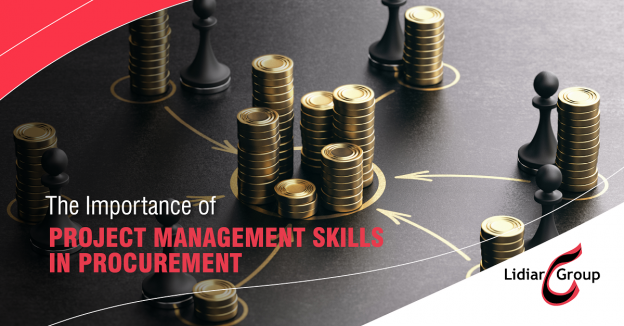
The Importance of Project Management Skills in Procurement
Lidiar Group’s Clara Nyamandi-Shoko has a decade of experience defining, delivering and supporting procurement strategies and tactics that benefit projects, supply networks, relationships and businesses.
In our latest ‘The Importance of’ series, Clara takes us through the vital requirement for procurement professionals to not only know their world but also to be world-class project managers.
Procurement plays a pivotal role in the success of any organisation as it entails the entire process of sourcing all inputs required to meet an organisation’s needs. While procurement is associated with sourcing and negotiating contracts – usually after engaging with the supply market, an often-overlooked aspect is the important role project management skills play as part of an effective procurement process. These project management skills make a substantial contribution to the success of the procurement process, by using established and defined processes, resulting in the removal of waste, and successfully aligned outcomes. In this post, we explore the value project management skills bring to procurement and their importance to the organisation’s profitability.
Efficient Planning and Execution
Project management skills bring structure and discipline to procurement activities. A well-defined procurement project plan includes a comprehensive scope, clearly aligned objectives and outcomes with all relevant stakeholders, resource allocation, key performance indicators and timelines. Procurement professionals with project management skills can accurately assess the requirements or specifications of end users, identify potential risks, and develop contingency plans. Clearly defining the scope and expectations of the project ensures procurement processes are managed efficiently. These include carefully evaluating supplier selection, rigorous contract negotiation, and timely and efficient order placement. Procurement professionals apply project management principles to ensure that the process is executed seamlessly, on time, and within budget, as specified in the project charter.
Stakeholder Management
Project management skills enable procurement professionals to effectively communicate and collaborate with all stakeholders. The communication plans, style, frequency, goals, and outcomes are specified and agreed upon in the project charter. With experience in many projects, procurement professionals, with strong emotional intelligence, identify and address their stakeholder’s diverse needs, expectations, and concerns. An excellent procurement professional should possess the following skills:
- effective communication techniques,
- ability to influence at all levels of the organisation,
- multi-level problem-solving capability, and
- conflict resolution.
Strong stakeholder management skills facilitate smoother procurement processes, foster strong relationships, and enhance overall project success. Furthermore, procurement professionals ensure transparency, accountability, and compliance with the project charter by involving stakeholders at key decision points as specified in the project charter and communicating with them as agreed throughout the procurement cycle.
Risk Mitigation
Risk management is a critical aspect of procurement that should be captured and documented in the contract to ensure that potential risks are identified, evaluated, and mitigated appropriately. Unforeseen events such as supplier delays, quality issues, or budget constraints can significantly impact the procurement cycle. Based on experience and market best practice, project management skills enable procurement professionals to proactively identify, assess, and mitigate risks. They develop risk mitigation strategies in collaboration with the suppliers and stakeholders, establish contingency plans, and monitor potential threats throughout the procurement cycle. By effectively managing risks, procurement professionals minimise disruptions, protect project outcomes, and ensure continuity of operations.
Cost Optimisation
Project management skills contribute to cost optimisation in procurement. Project management skills enhance cost optimisation by implementing Cost-Benefit Analysis, cost estimation techniques, efficient resource allocation, risk management using different tools and methodologies, and these will help in identifying potential cost-saving opportunities in procurement. They are proficient at conducting value analysis, supplier negotiations, and optimising procurement processes to achieve the best value for money.
Continuous Improvement
Project management principles foster a culture of continuous improvement, resulting in enhanced efficiency, productivity, and better outcomes over time. Procurement is a repetitive process that can benefit greatly from continuous improvement efforts and project management skills, through identifying inefficiencies, bottlenecks, and process gaps in the procurement process. At Lidiar Group we have procurement professionals with extensive project management skills acquired from the various engagements with our clients. We then transfer those skills from each engagement to continually benefit and exceed our clients’ expectations. Embracing project management principles enable organisations to streamline their procurement processes, enhance project success rates through aligned expectations in the project charter, and achieve strategic goals. Therefore, investing in project management skills for procurement professionals is an excellent decision that yields significant long-term benefits for any organisation operating in an increasingly competitive marketplace.
